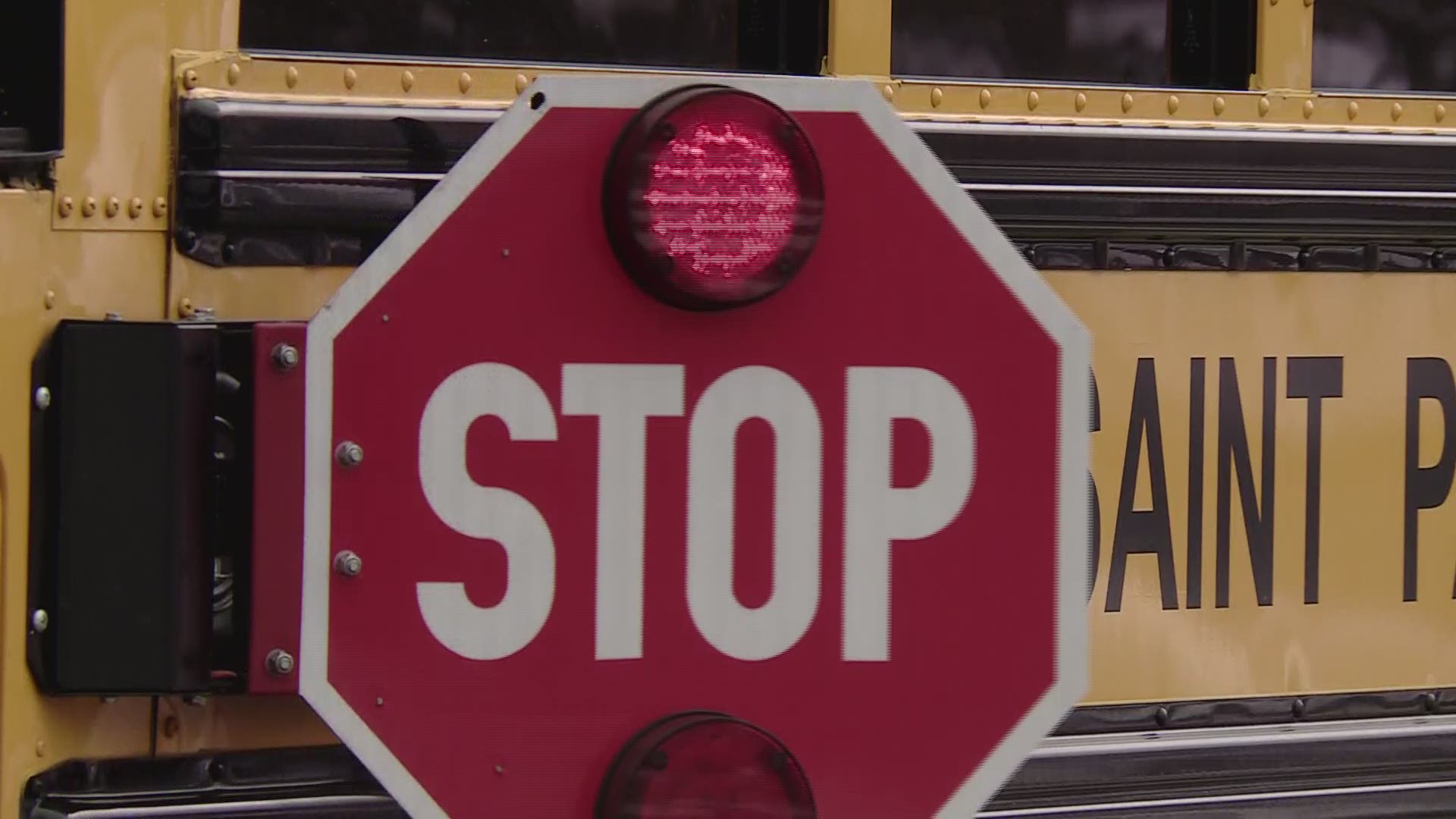ST PAUL, Minn. — The school bus stop arm signal isn't just a friendly suggestion. It's an urgent call to stop because it's a sure sign that children are around and they're depending on that little stop sign to do the protect them.
We can show you the near misses on TV, and we spare viewers the horrific accidents when children can't get out of the way of fast enough to avoid injury. But most violators aren't caught on camera.
That's precisely the problem Rep. Dan Wolgamott of Saint Cloud is trying to solve with a new bill that would boost fines and place more smart cameras on school buses.
"We've seen too many injuries and fatalities due to other drives passing a school bus while the emergency lights are flashing and the stop arm is extended," Rep. Wolgamott told fellow lawmakers Tuesday when his bill was heard in the House Transportation Committee.
"We have too many drivers on our roads that blow right past our school buses. That’s unacceptable!"
Currently, if an officer catches you in the act it's a $500 dollar fine. But that's rare. Wolgamott's bill is aimed at situation where the bus driver catches the driver's license plate number but has no proof of who is driving the vehicle.
In those cases, the owner of the vehicle is currently issued a $100 Driver Unknown citation, which is a petty misdemeanor. Wolgamott's bill would jack the Driver Unknown petty misdemeanor fine up to $300.
The novel part of the proposal is that it would send $250 of that fine to the school district where the violation took place, as a grant to help the district pay for subscribe to a smart camera service.
It would result in more tickets because the cameras would be catching plate numbers and precise data on location and time of day.
"The odds of a police officer being present when this happens is infinitely small, and automated enforcement is going to increase the number of tickets, therefore increase the education and the revenue streams," Jean Souiliere, the CEO of Bus Patrol, told lawmakers during Tuesday's hearing.
Souiliere's said his company has already outfitted 15,000 school buses nationwide with smart bus technology that grabs evidence of stop arm runners.
"Once an evidence package is built it's shared with the law enforcement technician or officer to approve it," Souliere exlained.
"If the ticket is approved it's sent to the offender and follows its course if it is disapproved, everything is purged from the system in an automated fashion."
Souliere says his company handles the upfront costs of installing the Bus Patrol equipment and the school districts pay a fee for the service. He said it's ultimately up to law enforcement to decide which videos provide sufficient evidence to issue a citation to the vehicle owner.
The bill passed the House Transportation Committee and is headed next to the House Judiciary Committee.
The three Republican legislators who voted against the bill raised questions about the legality of the smart cameras. They recalled that the courts struck down the red-light runner cameras that Minneapolis used at one point, and suggested school bus cameras would meet the same fate.
But supporters of the bill pointed out the school bus cameras aren't the primary piece of evidence. The videos and other embedded data will supplement what the bus driver and other witnesses saw with their own eyes.
Democrats also pointed out that the main legal barrier Minneapolis encountered with its automated red-light cameras was about jurisdiction -- they weren't specifically allowed by existing Minnesota state laws.
They said the constitutional due process and privacy issues some raised with the automated traffic light cameras weren't ever specifically addressed in the Minneapolis case.

